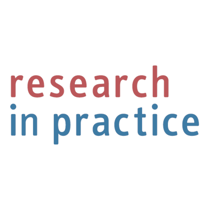All children should participate in issues that affect them and have their welfare promoted. New Research in Practice resources support effective participation with children and young people.
A new podcast with the Young Researchers’ Advisory Panel (YRAP) explores what true participation is. Three young people explain how centring young people in decision-making is essential in order to help safeguard them.
The podcast focuses on building relationships based on good communication, collaboration and trust. In new videos, Dr Jo Dillon reflects on direct work with children to involve them in decision-making.
To support care experienced children, videos share principles and tools for including their views. The videos are produced with the Bright Spots programme, which supports local authorities to listen to young people.
We all need to be seen and heard. Effective participation can support children to understand their identity, make sense of the past and build lasting relationships.
Embedding participation

For children who have experienced disruption, harm, danger or trauma, being seen and heard is crucial. It is the job of child and family social work professionals to ensure this happens. A new podcast talks about how young peoples participation can be protective.
During this podcast Meg, Evie and Keeley, three members of the Young Researchers’ Advisory Panel (YRAP), talk about how young people’s participation in services and research can be protective at an individual level and for young people more widely.
Dr. Jo Dillon reflects on the Working Together to Safeguard Children statutory guidance and the steer it gives us on involving children and young people in decision making.
Dr. Jo Dillon reflects on Rod Kippen’s guidance on direct work with children and young people and how we can involve them effectively in decision-making.
Dr. Jo Dillon of the University of Sheffield shares the legal basis for ensuring that children can actively take part in decision-making processes that affect their safety and security.
Participation with children in care and care leavers

Developing effective communication skills can enhance the quality of interactions with children and young people who have experienced care. This supports positive outcomes and builds lasting relationships. New videos present the views of children in care and care leavers about staying connected.
These videos and resources share learning from the Bright Spots programme. They present the views of children in care and care leavers about staying connected to the people who are important to them, and principles and tools for developing practice in this area.
Coram Voice's New Belongings Programme highlights the value of working with care leavers on local solutions that they feel will make the most difference to them.
A new report by Bright Spots highlights what children in care have said about what is important to them and their wellbeing.
The briefing provides key messages from the Bright Spots programme, practice examples and reflective questions to help strategic leads and practitioners think about how they might use the evidence and be involved in the programme in the future.
This recorded webinar shares key learning from the Bright Spots programme so that professionals can better support children in care and care leavers.
Supporting effective participation

Effective participation can support positive outcomes and build lasting relationships. It is important that all children participate in the issues which affect them.
These two videos highlight examples of approaches to involving young people and adults in supporting development and delivery of services and support.
This practice tool considers the degree to which children can actively take part in decision-making processes that affect their safety and security.
This practice tool aims to build confidence in explaining difficult stories for care experienced children and young people.
This Practice Tool is aimed at practitioners working with children and families to support the use of genograms in practice, both as a tool for direct work and to inform assessment and decision making.





